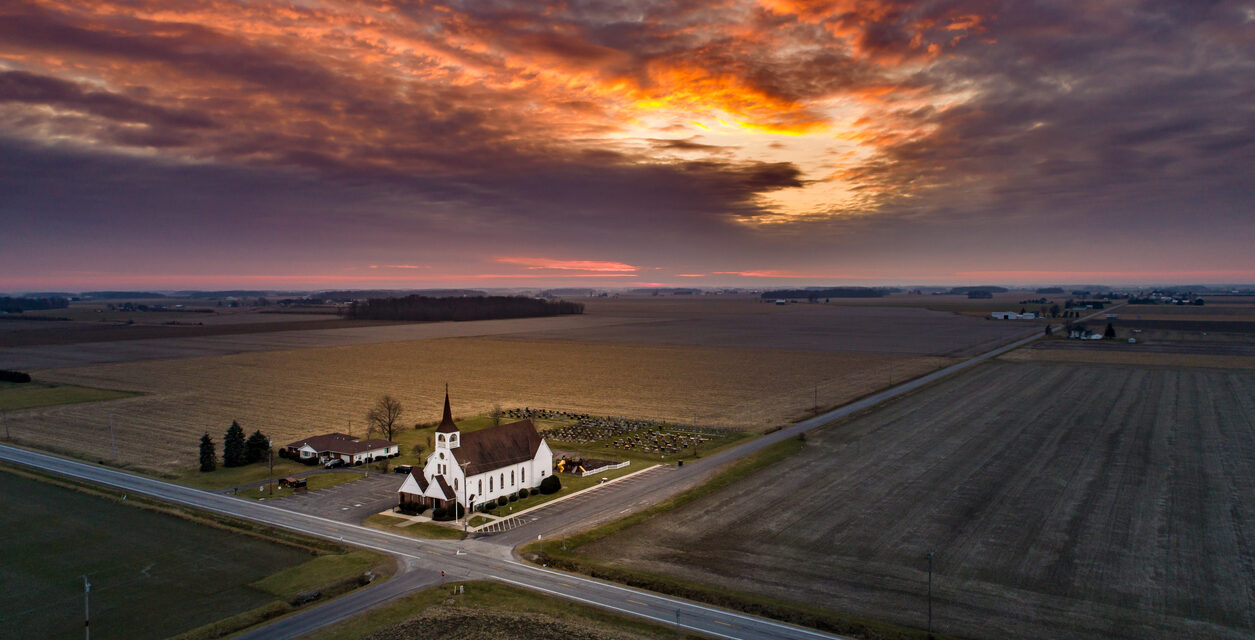13 Trends to Watch for | By J.R. Briggs
Pastors can continue to grow churches, despite the rapid and daunting societal changes we are witnessing. By understanding the trends, they can minister faithfully and in power.
Recently, I was in a room in Central Pennsylvania with North American leaders and kingdom practitioners from around the country for a retreat. After lunch we centered our conversation around this question:
“Where is the Church in North America heading and what are the implications?”
For those who know me, you know I am passionate about discussing a great question. And this certainly is a significant one.
Many missiologists, theologians, and scholars believe the Global Church is becoming more diverse and moving south (that is, the center of Christianity is no longer in North America, but its greatest movement is in the Southern Hemisphere, particularly South America and the southern part of the continent of Africa).
But what about North America? Well, we don’t know for sure, but we are seeing it become more diverse (ethnic, racial, gender, etc.), more urban, and more post-Christian/postmodern. With all this as the foundation, we dug deeper. We broke down our answers into three categories:
⦁ Sociological (what does this mean for how we interact with others)
⦁ Ecclesiological (what does this mean for the Church and localized churches)
⦁ Missiological (what does this mean in how we join with God and His mission)
Here’s what we surmised for each category:
SOCIOLOGICAL
⦁ People (and thus churches) will become more and more digital…while at the same time, there will also be an increased desire for a more analog reality.
Technology will become more important, while at the same time, there will be a growing movement of people who will long for a less techno-centric living in order to be more present and grounded.
⦁ Graciously navigating people’s shame will be an ever-increasingly important evangelistic inroad into people’s lives.
Shame is so prevalent in our culture, and most people don’t have the tools and skills to navigate the problems that shame brings. If the Church can compassionately learn to enter into people’s shame to experience forgiveness and honor that comes from being a child of God, an evangelistic movement can start.
⦁ Rented/shared church building spaces will become much more commonplace.
Because of this, partnerships with groups and members of the community will become even more important and strategic moving forward.
⦁ There will be a growing longing and desire to return to the roots of our childhood.
We see this already with the wild success of Toy Story 4, the return of items such as fanny packs and Nintendo, the popularity of the Netflix show Stranger Things, superheroes, and a growing number of adult sleep-away camps. How might the Church utilize this longing to help us see the wonder of being a child of God?
⦁ A return to and increased desire for a robust, thoughtful, and faithful holiness.
It will be free from legalism and moralistic elitism, but full of a faithfulness to honor God more fully. While holiness has been seen as negative, there will be a passionate desire to return to holistic, holy living as we focus on God in His holiness.
ECCLESIOLOGICAL
⦁ A greater emphasis (if not necessity) on holistic and integrated practice-based faith for Christianity to be taken seriously in the future (praxis).
People long to practice their faith, not merely talk about it.
⦁ Church size will become more polarized.
Churches will continue to become larger (megachurches) but also smaller (house churches, small church movement, etc.) with little room for the middle sizes.
⦁ Pastors around 40 years of age and younger will not retire from full-time ministry.
Bi-vocational and co-vocational ministry will continue to grow. Seminaries that adapt to these realities will flourish; those that don’t will disappear or merge with other seminaries.
⦁ In a world of increasing immediacy, un-rootedness, and fluidity, there will be a desire for long-standing tradition and liturgy within churches.
There will be an increase because people long to know they are part of something bigger and older than they are.
⦁ Networks of spiritual mentoring and apprenticeship will increase.
MISSIOLOGICAL
⦁ Leaders on the fringes of denominations will join together in stronger and thicker partnerships and relationships (associations, networks, loose tribes, bands, etc.).
Tribes and associations will form out of this desire that will share more of a philosophical and missiological identity, rather than doctrinal affiliation. Leaders who have felt out of place will now feel like they belong to a place that feels like home to them.
⦁ New forms of church will continue to emerge.
They will be lightweight, low maintenance, and high accountability (the movement, Fresh Expressions U.S., may be the leading edge of movements/networks who are positioning themselves for the changing nature of the Church).
⦁ This a Daniel moment.
As the Church seeks to be faithful in an ever-increasingly hostile world, where we are always “playing an away game,” the book of Daniel will be the text which Christians will need to study, discuss, and emulate with more passion and conviction. This is what we call a Daniel moment.
Learn more about J.R. Briggs and Kairos Partnerships at www.kairospartnerships.org. Be sure to check out the Resilient Leaders podcast. This article originally appeared here.






